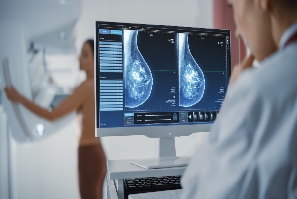ABOUT US
Choosing the right diagnostic radiology is a crucial decision. At Salmiya Clinic, we prioritize your comfort and care, providing a supportive environment where our knowledgeable staff is dedicated to treating you as a person, not just a patient.
Our Commitment to Excellence
- Knowledgeable staff: Our team is trained to address your concerns and provide personalized care
- Safe and proven procedures: We adhere to industry standards, ensuring your safety and well-being
- Latest medical technology: Our facility is equipped with state-of-the-art equipment, enabling accurate diagnoses and effective treatment
Meet Our Team
- Radiology Doctor: Our experienced Radiologist interpret imaging results, providing accurate diagnoses and collaborating with your healthcare
- Technician: Our skilled technicians operate our advanced equipm
What We Do..
Radiology department of Salmiya Clinic is providing a patient-friendly environment. We have spared no expense to equip our facilities with the most modern and comfortable machines available and are constantly updating to keep pace with the leaps in imaging technology. We have a staff of excellent fellowship trained radiologists who pledge to get the exam results to their physicians quickly and accurately.
BONE DENSITOMETRY (DEXA)
//////////////////////////
At Salmiya Clinic, we offer Bone Densitometry (DEXA) scans to assess bone health and detect conditions like osteoporosis. DEXA scans measure bone mineral density, helping us identify small changes in bone mass.
Why DEXA Scans Matter
- Diagnose osteoporosis and assess fracture risk
- Monitor bone health over time
- Identify bone loss or changes in bone density
Who Should Get a DEXA Scan?
- Postmenopausal women
- Men with risk factors for osteoporosis
- Individuals with a family history of osteoporosis
- Those taking medications that may affect bone density



HOW DOES DEXA WORK?
During a DEXA exam:
- You'll lie comfortably on a padded table, face up.
- Remain still during the exam for accurate results.
- Breathe normally throughout the procedure.
What to Expect
- Scanning of the spine and femur, common fracture sites.
- The scanner will pass over your lower spine, hip, or forearm.
- No discomfort or sensations during the exam.
Benefits of DEXA
- Accurate assessment of osteoporosis risk.
- Helps prevent fractures and osteoporotic complications.
RADIOGRAPHY (X-RAY)
Conventional radiography is a widely used diagnostic imaging modality. Our radiologists utilize various techniques to produce high-quality images, tailored to visualize specific organs or structures.
Benefits
- Quick and non-invasive
- Helps diagnose a range of conditions
- Guides treatment decisions

Applications
- Bone and joint imaging
- Chest and lung imaging
- Abdominal imaging
Trust Our Expertise
Our experienced radiologists use conventional radiography to provide accurate diagnoses and support your healthcare needs.
Schedule Your X-ray Today


WHAT DO I NEED TO DO BEFORE MY X-RAY?
Preparing for a Bone X-ray
- No special preparation required for most bone radiographs
- You may be asked to change into a gown
- Remove jewelry, eyeglasses, and metal objects that could interfere with images
Important Notice for Women
- Inform your doctor or X-ray technologist if you may be pregnant
MAMMOGRAM
A screening mammogram helps detect breast cancer in the early stages, before it has spread. Screening mammograms are recommended annually for women who are 40 years or older, as well as those who may be at higher risk for breast cancer (e.g., family history). The exam takes about 15 minutes and usually includes taking two radiographic images of each breast. A diagnostic mammogram provides a more detailed X-ray of the breast.

ULTRASOUND
- Distinguishes between cystic (fluid-filled) and solid structures
- Excellent for targeted examinations
- Relatively low cost, making it a great first-line testing option
Applications
- Solid internal organs: liver, pancreas, spleen
- Reproductive organs
- Thyroid
- Fetal imaging during pregnancy
- Vascular assessment: arteries and veins
- Musculoskeletal imaging: skin, muscles, arms, and legs





